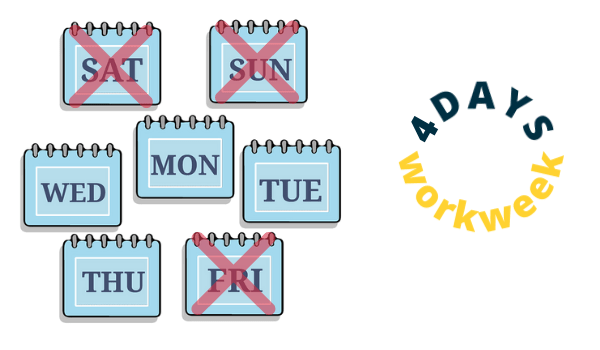Trends
Everything to know about the Four-day workweek, El-Rufai is Proposing in Kaduna State.
A four-day workweek is an arrangement where a workplace or school has its employees or students work or attend school over the course of four days per week rather than the more customary five.

The Executive Governor of Kaduna State, Nasir El-Rufai recently proposed a Four-day workweek in the state, whereby public servants, except those in schools and healthcare facilities, will be permitted to work from home for one day per week.
What is a Four-day workweek?
According to Wikipedia, A four-day workweek is an arrangement where a workplace or school has its employees or students work or attend school over the course of four days per week rather than the more customary five.
The concept has remained loosely relevant within the contemporary workplace due to the various possible benefits it may yield such as cost-cutting, increased productivity and work-life balance.
The main idea behind the Four day work week is that by having employees or students work or attend school one less day a week, then they will have additional time to pursue hobbies, spend time with family, get more sleep and increase overall morale.
Which will consequently make these employees or students more productive and refreshed for working or learning, which will make up for the lost day where they would otherwise be overworked and overtired.
In addition to the aforementioned benefits, having the workplace or school open one less day a week, the operating costs and environmental costs will decrease for businesses and society alike.
There are several ways the four-day week can take shape. Taking Fridays off, half days, and different days off for different employees are all options that are considered when starting the four-day week.
What countries have a four-day workweek?
They are few countries experimenting the four-day workweek in the countries, according to BBC.com, the Four-day work week was an overwhelming success in Iceland.
Spain recently launched a four-day workweek pilot in September 2021 which will last three years, New Zealand Prime Minister Jacinda Ardern suggested a four-day workweek could boost the country’s economy.
Although the concept has been presently abolished in few countries the success and the impact cannot be denied.
In 2008, the Utah State Government implemented the four-day workweek in Utah, mandating all government employees to work for 10 hours only from Monday to Thursday, closing state government offices on Fridays.
The state was expected to save on operating costs such as electricity, heat, air conditioning, and gasoline for state-owned vehicles. The state government however ended the practice n 2011.
The Gambia also implemented the four-day workweek for public officials on the 1st of February 2013. The Working hours were limited to Monday through Thursday, 08:00 to 18:00, with Friday designated as a day of rest to allow residents more time for prayer and agriculture. The regulation was however abolished in 2017 following a change of government.
Countries like the United Kingdom, Scotland and Japan are also planning to implement such structures into their economy and workforce.
